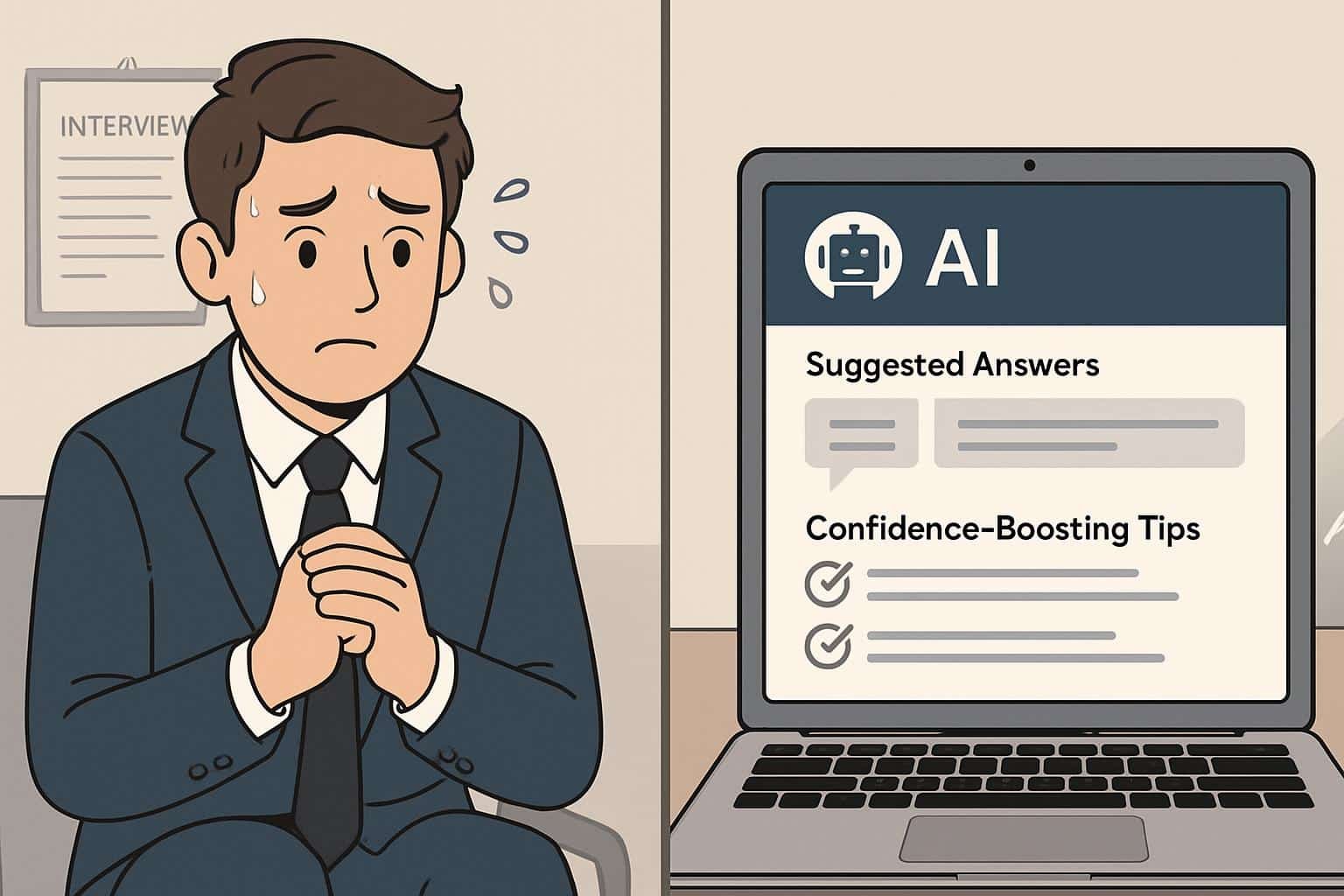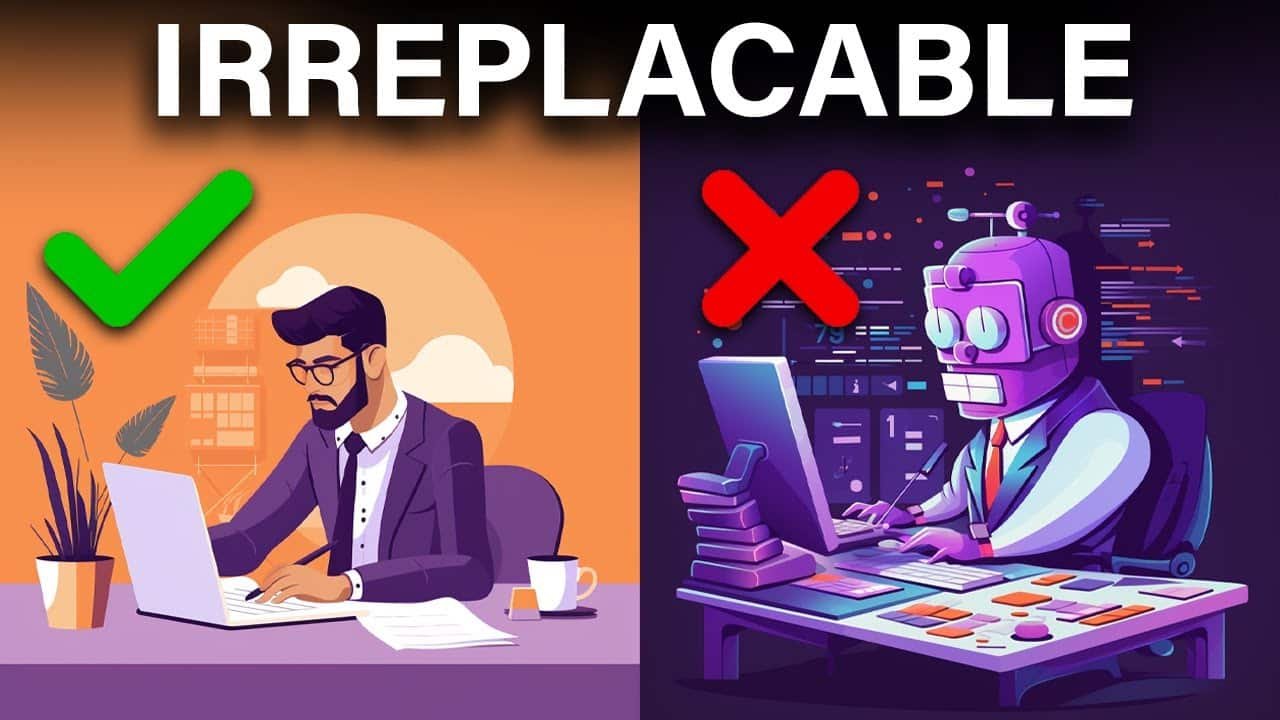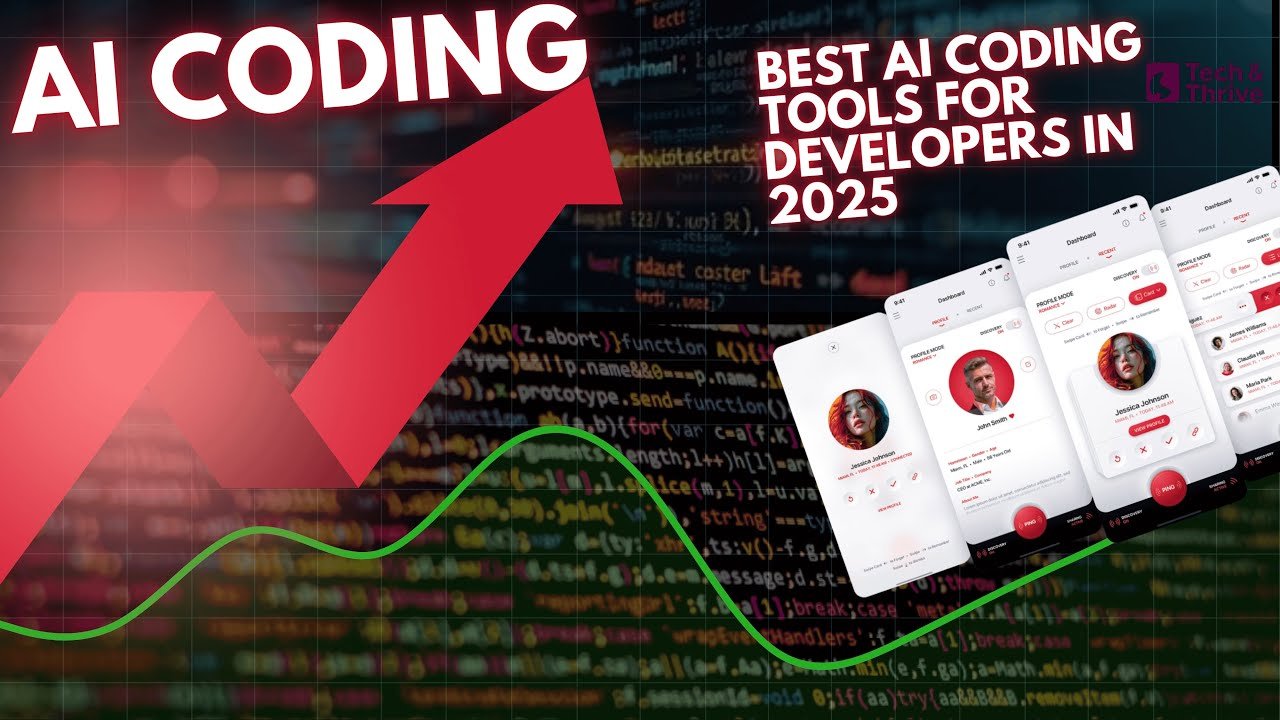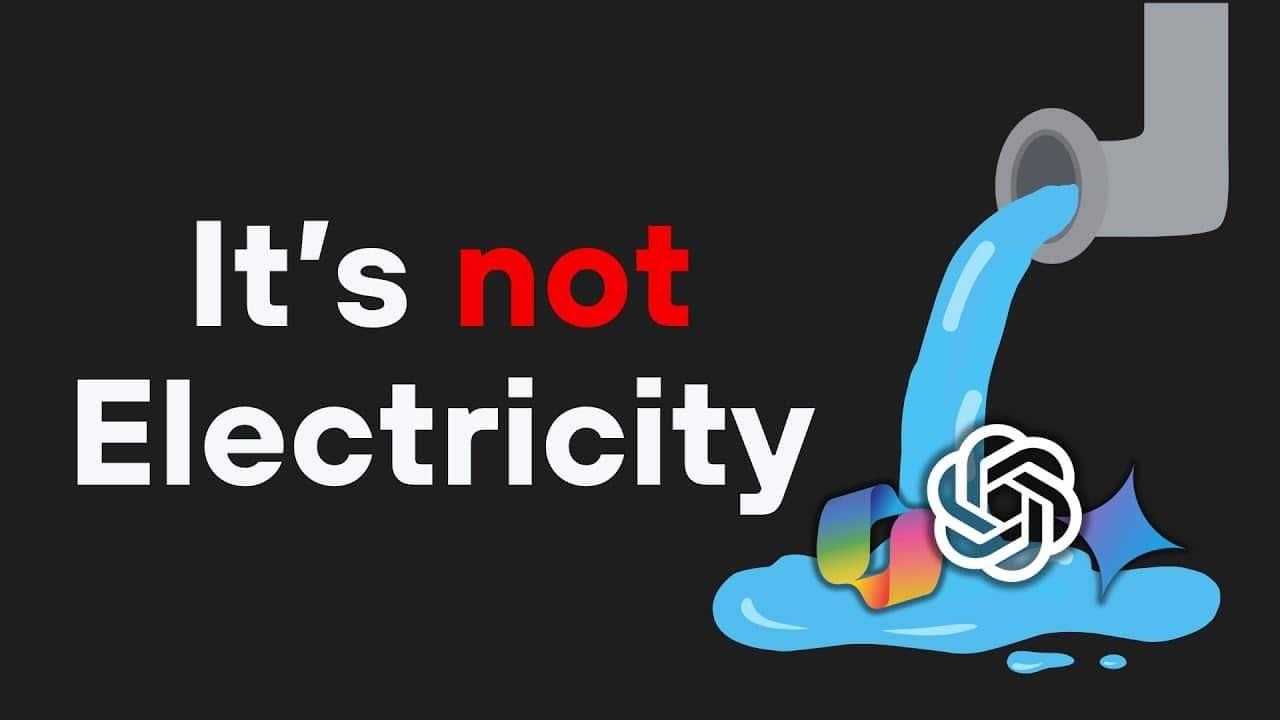What Jobs Are Safe from AI? A Complete Guide to Future-Proofing Your Career
The question keeping many professionals awake at night isn’t whether AI will change the job market – it’s how dramatically it will reshape our careers and whether we’ll be ready for it. The reality is that we’re standing at the crossroads of one of the most significant workplace transformations in history.
While uncertainty about the future can feel overwhelming, understanding the trends and preparing strategically can turn potential threats into opportunities. The key is knowing what’s coming and positioning yourself ahead of the curve.
The Five Mega-Trends Reshaping Our Professional World
1. Technology’s Revolutionary Impact
The biggest game-changer isn’t just AI – it’s the convergence of artificial intelligence, robotics, and digital transformation happening simultaneously. This technological revolution is creating entirely new job categories while making others obsolete. Unlike previous technological shifts that happened gradually over decades, this change is compressed into just a few years.
The most exciting part? New roles are emerging faster than old ones are disappearing. Companies need specialists who can bridge the gap between human creativity and machine efficiency. This creates opportunities for those who learn how to use AI tools effectively in their current roles.
2. Geopolitical Tensions Redrawing Economic Maps
The growing tension between major economies, particularly the US and China, is forcing businesses to completely rethink their strategies. Supply chains are being restructured, new trade partnerships are forming, and entire industries are relocating.
This shift creates opportunities in domestic manufacturing, supply chain management, and international business consulting. Companies need professionals who understand both global economics and local market dynamics.
3. The Demographic Divide
Here’s where things get interesting: while developed countries face aging populations creating massive healthcare demands, emerging markets have young, expanding workforces driving education needs. This creates a two-speed global economy with different skill requirements.
In countries like South Korea, where the elderly will soon outnumber the working-age population, there’s growing demand for healthcare technology specialists, eldercare professionals, and automation experts. Meanwhile, developing regions need educators, digital literacy trainers, and infrastructure developers.
4. Economic Pressures Driving Innovation
Rising living costs and slower economic growth aren’t just challenges – they’re catalysts for innovation. When traditional employment becomes less secure, people get creative. The gig economy, remote work, and entrepreneurship are no longer alternatives; they’re becoming the new normal.
This economic pressure is forcing workers to become more adaptable and skilled. Those who embrace continuous learning and skill development will thrive, while those who resist change will struggle.
5. The Green Transition Opens New Frontiers
Climate change isn’t just an environmental issue – it’s an economic opportunity. The transition to renewable energy, sustainable manufacturing, and environmental protection is creating entire new industries. From renewable energy engineers to sustainability consultants, green jobs are multiplying rapidly.
The Numbers Don’t Lie: What the Data Shows
The World Economic Forum’s latest report brings both sobering realities and encouraging news. While 92 million jobs will be displaced by 2030, an impressive 170 million new positions will be created. That’s a net gain of 78 million jobs – a significant improvement from previous, more pessimistic projections.
This shift toward optimism isn’t accidental. It reflects how businesses are learning to integrate AI as a tool that enhances human capabilities rather than simply replacing workers. The key is positioning yourself in roles that complement AI rather than compete with it.
Jobs on the Decline: Understanding What’s Disappearing

The Automation Casualties
Several job categories are facing systematic elimination:
Postal Service Clerks: Automated sorting systems are handling most mail processing, though delivery services will likely continue until drone technology fully matures.
Data Entry Clerks: AI systems can now process, enter, and analyze data far more efficiently than humans, making manual data entry largely obsolete.
Bank Tellers: Online banking and mobile apps have reduced the need for in-person transactions, with many branches operating with minimal staff.
Cashiers and Ticket Clerks: Self-checkout systems and automated ticket counters are becoming standard across retail and service industries.
Administrative Assistants: AI-powered scheduling, email management, and productivity tools are automating many traditional secretarial tasks.
The Pattern Behind the Losses
Notice something important: these disappearing jobs all involve repetitive, rule-based tasks. They’re precisely the kind of work that AI excels at – consistent, predictable, and following clear procedures. If your current role involves primarily routine tasks, it’s time to expand your skill set.
The Rising Stars: Where New Opportunities Are Emerging
Technology Roles Leading the Charge
Big Data Specialists: Companies are drowning in data but starving for insights. These professionals help organizations make sense of massive datasets to drive better decision-making.
FinTech Engineers: The financial industry is being revolutionized by technology, creating demand for professionals who understand both finance and cutting-edge tech.
AI and Machine Learning Specialists: Contrary to popular belief, AI isn’t replacing all jobs – it’s creating new ones. Someone needs to design, implement, and maintain these systems.
Software and Application Developers: Despite AI’s advancement, human creativity and problem-solving remain essential in software development. The demand for skilled developers continues to grow.
Security Management Specialists: As our world becomes more digital, protecting systems and data becomes increasingly critical. Cybersecurity professionals are in high demand across all industries.
The Fascinating Connection
Here’s something most people miss: there’s a direct correlation between disappearing jobs and emerging opportunities. Data entry clerks are being replaced by big data specialists. Bank tellers are giving way to FinTech engineers. The work isn’t vanishing – it’s evolving and becoming more sophisticated.
This pattern reveals a crucial insight: the key to career survival isn’t avoiding technology, but embracing it and moving up the value chain. Those who understand this principle can transition from threatened roles to thriving careers.
Beyond the Top Five: Other Growing Sectors
While technology dominates the headlines, other sectors are experiencing significant growth:
Healthcare: An aging global population is driving demand for nurses, specialized medical technicians, and healthcare technology specialists.
Education: Rapid technological change means continuous learning is essential, creating opportunities for trainers, curriculum developers, and online education specialists.
Green Energy: Climate change initiatives are creating jobs in renewable energy installation, environmental engineering, and sustainability consulting.
Autonomous Vehicles: The transportation industry is being revolutionized, creating opportunities for specialists in autonomous systems, vehicle safety, and smart transportation infrastructure.
The Skills That Will Define Your Success
Technical Skills in High Demand
The fastest-growing technical skills include:
- AI and Machine Learning: Understanding how these technologies work and how to apply them
- Big Data Analytics: Ability to extract insights from large datasets
- Cybersecurity: Protecting digital assets and systems
- Cloud Computing: Managing and deploying cloud-based solutions
- Digital Marketing: Reaching customers in an increasingly digital world
The Generative AI Revolution
Generative AI training is experiencing explosive growth, particularly in the US and India. In America, popular topics include prompt engineering, trustworthy AI, and AI-driven decision-making. Indian companies are focusing on using AI tools to boost efficiency and accelerate application development.
This two-pronged approach shows how the industry is maturing: building robust foundations while driving practical applications.
Don’t Forget the Human Touch
While technical skills grab attention, human-centered abilities remain irreplaceable:
- Creative Thinking: AI can process information, but human creativity drives innovation
- Leadership: Managing teams and inspiring people requires emotional intelligence
- Communication: Translating complex ideas into understandable concepts
- Problem-Solving: Identifying and addressing challenges that don’t have clear solutions
- Adaptability: Thriving in constantly changing environments
The Coding Misconception
One of the most common questions I hear is: “If AI can write code, should I bother learning programming?” This misses the point entirely. Coding is becoming a foundational skill like basic mathematics – everyone needs to understand the fundamentals, even if they’re not professional developers.
Think of it this way: you don’t need to be a mathematician to use math in daily life, but basic mathematical literacy is essential. Similarly, basic coding skills will become necessary for most professionals, regardless of their specific field.
For those interested in building these foundational skills, there are excellent resources available for learning AI tools and techniques that can enhance any career.
The Training Imperative
Here’s a striking statistic: 59% of workers will need retraining by 2030. This isn’t a prediction – it’s a reality that’s already beginning. The question isn’t whether you’ll need to upskill, but when and how you’ll do it.
The most successful professionals are those who embrace continuous learning. They don’t wait for their employers to provide training; they actively seek opportunities to expand their skill sets. This proactive approach to professional development is becoming a key differentiator in the job market.
Making the Connection: From Threat to Opportunity
Remember the correlation I mentioned earlier between disappearing and emerging jobs? This pattern reveals the most important principle for career survival: transformation rather than replacement.
If you’re currently in a data entry role, you’re not destined for unemployment. Instead, you’re positioned to become a data specialist who understands both the technical and practical aspects of data management. Your experience with data handling gives you insights that pure technologists might lack.
Similarly, if you’re an administrative assistant, you can evolve into a productivity specialist who helps teams optimize their workflows using AI tools. Your understanding of office dynamics and communication patterns is valuable in designing effective automated systems.
Industries Creating New Opportunities
Beyond individual roles, entire industries are expanding:
Healthcare Technology: Combining medical knowledge with technological innovation Educational Technology: Developing tools and methods for more effective learning Environmental Services: Addressing climate change through technology and policy Digital Marketing: Reaching customers through increasingly sophisticated online channels Remote Work Solutions: Enabling distributed teams to collaborate effectively
Many of these sectors benefit from professionals who understand both the traditional industry and emerging technologies. This is where experienced workers can leverage their knowledge while building new skills.
Your Action Plan for Career Future-Proofing

1. Assess Your Current Position
Look at your current role and identify which tasks are routine versus those that require creativity, complex problem-solving, or human interaction. Focus on developing the latter while preparing to automate or eliminate the former.
2. Identify Skill Gaps
Research the emerging roles in your industry and identify the skills they require. Create a learning plan that addresses these gaps systematically.
3. Start Small
You don’t need to completely change careers overnight. Begin by incorporating AI tools into your current role. Learn how to use AI for specific work tasks and gradually expand your capabilities.
4. Build a Learning Network
Connect with professionals who are successfully navigating these changes. Join online communities, attend industry events, and find mentors who can guide your transition.
5. Stay Informed
The landscape is changing rapidly. Stay current with industry trends, new technologies, and emerging opportunities. Regular reading and research should become part of your routine.
The Opportunity in Uncertainty
While the pace of change can feel overwhelming, it also creates unprecedented opportunities for those who are prepared. The key is to view AI and automation not as threats, but as powerful tools that can enhance your capabilities and create new possibilities.
The professionals who thrive in this new era won’t be those who resist change, but those who embrace it strategically. They’ll combine human creativity with technological efficiency, creating value that neither could achieve alone.
The future belongs to those who understand that the question isn’t whether AI will change the job market – it’s how quickly they can adapt to benefit from these changes. By understanding the trends, developing the right skills, and positioning yourself strategically, you can turn potential disruption into career advancement.
The transformation is already underway. The question is: will you be ready to seize the opportunities it creates?
Looking to dive deeper into specific AI skills? Check out our comprehensive guides on AI tools for HR professionals and making money with AI testing jobs to start building your future-proof skill set today.










Your blog is a breath of fresh air in the often mundane world of online content. Your unique perspective and engaging writing style never fail to leave a lasting impression. Thank you for sharing your insights with us.
Can I simply say what a aid to seek out someone who truly is aware of what theyre talking about on the internet. You definitely know methods to carry an issue to mild and make it important. Extra people have to read this and perceive this aspect of the story. I cant imagine youre no more well-liked since you positively have the gift.
Very interesting subject, thank you for putting up.
wonderful post.Never knew this, regards for letting me know.